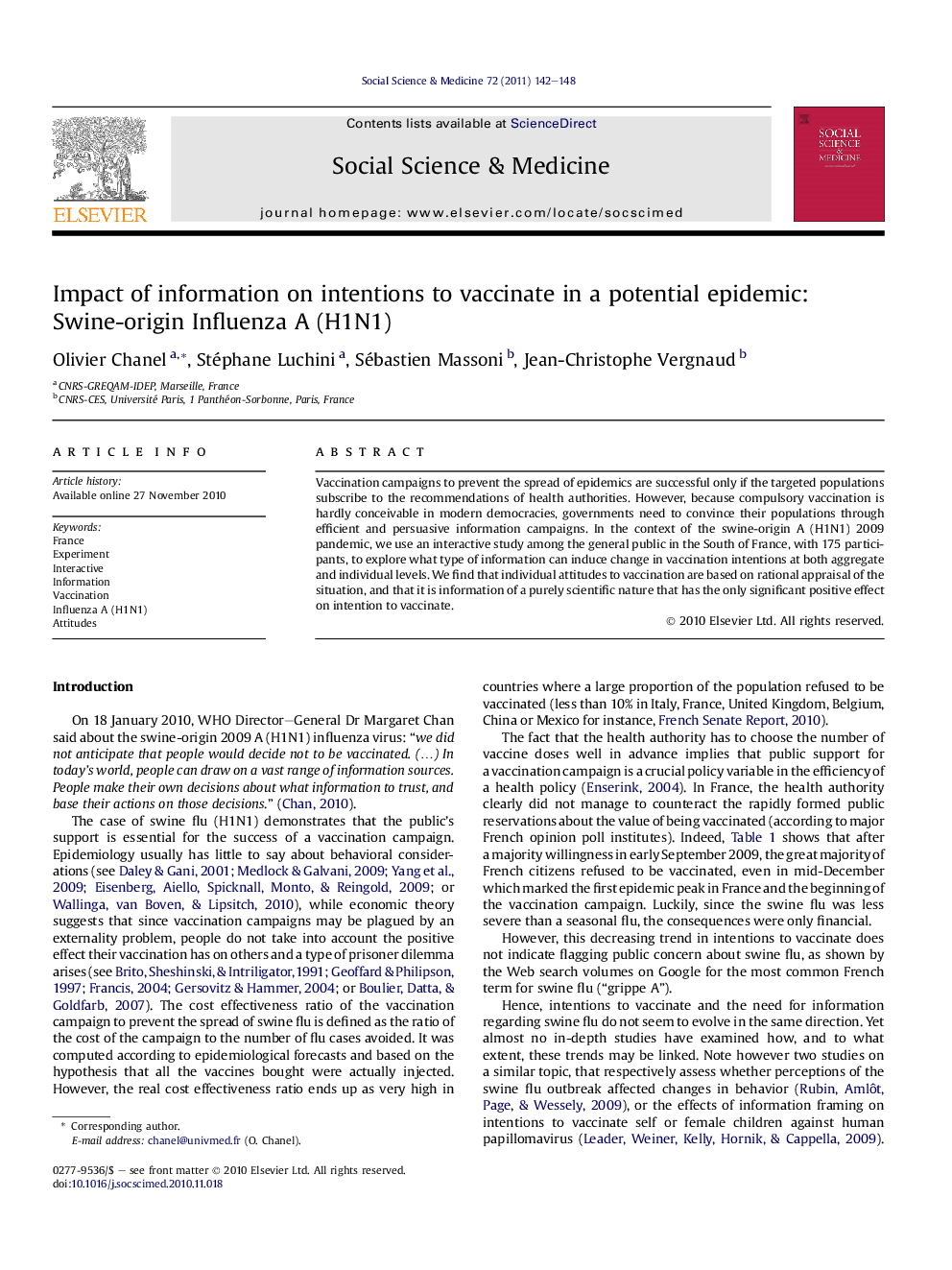| Article ID | Journal | Published Year | Pages | File Type |
|---|---|---|---|---|
| 952765 | Social Science & Medicine | 2011 | 7 Pages |
Vaccination campaigns to prevent the spread of epidemics are successful only if the targeted populations subscribe to the recommendations of health authorities. However, because compulsory vaccination is hardly conceivable in modern democracies, governments need to convince their populations through efficient and persuasive information campaigns. In the context of the swine-origin A (H1N1) 2009 pandemic, we use an interactive study among the general public in the South of France, with 175 participants, to explore what type of information can induce change in vaccination intentions at both aggregate and individual levels. We find that individual attitudes to vaccination are based on rational appraisal of the situation, and that it is information of a purely scientific nature that has the only significant positive effect on intention to vaccinate.
Research highlights► We seek types of information inducing changed vaccination intentions. ► An interactive general public survey is used during 2009s influenza A pandemic. ► We find that individual attitudes to vaccination are based on rational appraisal. ► Only information of a purely scientific nature leads to positive significant change. ► We propose practical scientific information channels for the public.
